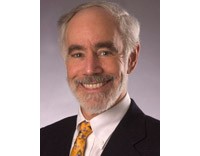Advertisement
Grab your lab coat. Let's get started
Welcome!
Welcome!
Create an account below to get 6 C&EN articles per month, receive newsletters and more - all free.
It seems this is your first time logging in online. Please enter the following information to continue.
As an ACS member you automatically get access to this site. All we need is few more details to create your reading experience.
Not you? Sign in with a different account.
Not you? Sign in with a different account.
ERROR 1
ERROR 1
ERROR 2
ERROR 2
ERROR 2
ERROR 2
ERROR 2
Password and Confirm password must match.
If you have an ACS member number, please enter it here so we can link this account to your membership. (optional)
ERROR 2
ACS values your privacy. By submitting your information, you are gaining access to C&EN and subscribing to our weekly newsletter. We use the information you provide to make your reading experience better, and we will never sell your data to third party members.
Pharmaceuticals
Patients In Charge
Patient advocate says the educated patient is the best consumer
by Linda R. Raber
June 19, 2006
Nowadays, patients with serious illnesses not only deal with the heartbreak and anxiety of a diagnosis but also are increasingly saddled with the chore of figuring out, sometimes on their own, the treatment options. Finding the information is not the problem, but filtering it presents a challenge. That is where organizations like CancerCare enter the picture.
CancerCare is a national nonprofit agency that, for more than 55 years, has provided emotional support, information, education, financial assistance, and practical help to people with cancer, their loved ones, and the people who treat and care for them. The organization gets approximately 900 requests for those services every week.
Today, patients have more access to information but less time with their health care professionals to help them understand what it all means to their specific situation, says Diane Blum, executive director of CancerCare. "The baby boom generation is moving into their prime cancer years, and its members are going to be more involved in their own care at all stages of their lives. It's scary in some ways. You see this aging population, people living much longer, more expensive interventions, and a health care system that is quite fragmented," she says.
Blum believes that educating patients and their caregivers will be key to successful medical outcomes for cancer patients. The drugs used in chemotherapy are one major area for education. In the past, pharmaceutical information was directed to physicians only, Blum says. But with much medical treatment for cancer patients done on an outpatient basis now, that practice has changed completely.
"People who have cancer are in a very different situation than they were 10, 15, 20, or certainly 40 years ago in that they are much more in the community. They aren't in hospitals much anymore, and they are very much on their own. They often receive complex treatments, and they go home and manage much of their treatment by themselves." Information, counseling, and financial services like those that CancerCare provides will be increasingly important.
Many of CancerCare's clients are enormously concerned about drug pricing, and drug companies are worried that they are being perceived negatively. The switch to Medicare Part D is problematic for many patients. "Cost is a real issue," Blum says. "As you get more of these treatments developed that are biotech-based, they are all very expensive, and some of them are now given for a long time. I don't know how this is going to play out. Who is going to be able to pay for that?"






Join the conversation
Contact the reporter
Submit a Letter to the Editor for publication
Engage with us on Twitter